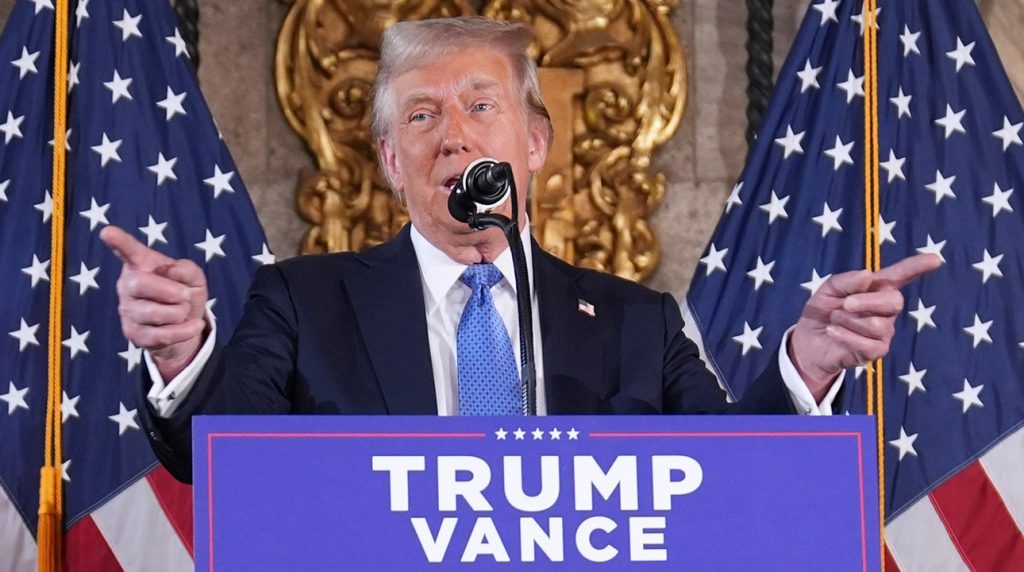The exchange between President-elect Trump and the reporter regarding preemptive strikes on Iran highlights the complex and sensitive nature of international relations, particularly concerning national security and military strategy. Trump’s refusal to directly address the question underscores the delicate balance a leader must strike between transparency and strategic ambiguity. Publicly disclosing intentions, especially regarding military actions, could compromise operational security, alert adversaries, and potentially escalate tensions. Conversely, complete secrecy can breed distrust and speculation, both domestically and internationally. Trump’s response, while evasive, acknowledges the gravity of the situation and the potential consequences of any action taken against Iran. His emphasis on the “horrible war” in Ukraine further underscores the global context and the interconnectedness of various conflicts.
Trump’s rhetorical strategy in responding to the reporter’s questions can be interpreted as a deliberate attempt to avoid committing to a specific course of action while simultaneously signaling a firm stance against Iran’s nuclear ambitions. By neither confirming nor denying the possibility of preemptive strikes, Trump maintains strategic flexibility, leaving all options on the table. This approach allows him to adapt to changing circumstances and react to new information without being bound by previous statements. It also sends a message of deterrence to Iran, suggesting that all responses, including military action, remain possible depending on Iran’s behavior. The ambiguity also serves to keep potential adversaries guessing, complicating their strategic calculations and potentially deterring them from provocative actions.
The reporter’s subsequent question regarding Israel striking Iran further complicates the issue, introducing the dynamic of alliances and regional partnerships. Trump’s response reflects an understanding of the sensitive interplay between US foreign policy and the actions of its allies. Publicly supporting or opposing a potential Israeli strike could significantly impact regional stability and the US’s relationship with both Israel and other countries in the Middle East. By refusing to comment on the hypothetical scenario, Trump avoids escalating tensions and maintains the US’s ability to mediate and influence the situation. This nuanced approach allows for back-channel diplomacy and quiet coordination with allies without prematurely committing to a specific course of action.
Trump’s mention of efforts to secure the release of hostages and bring an end to the conflict in Ukraine adds another layer of complexity to the discussion. These remarks underscore the interconnectedness of global issues and the multifaceted nature of foreign policy. The hostage situation and the war in Ukraine represent pressing concerns that demand attention and resources, potentially influencing decisions regarding Iran. By highlighting these other challenges, Trump implicitly acknowledges the broader geopolitical context in which any decision regarding Iran must be considered. This context suggests that a singular focus on Iran could detract from other critical priorities and that a holistic approach to foreign policy is necessary.
The reporter’s questions and Trump’s responses shed light on the inherent challenges of communicating about national security issues in a public forum. Transparency is essential for democratic accountability, but complete openness can undermine sensitive operations and diplomatic efforts. Finding the right balance between informing the public and protecting national security interests requires careful consideration and strategic communication. Trump’s approach, characterized by calculated ambiguity, reflects an understanding of these complexities. It allows him to maintain flexibility, avoid premature commitments, and signal resolve without escalating tensions.
In conclusion, the exchange between President-elect Trump and the reporter regarding Iran reveals the multifaceted nature of foreign policy decision-making and the delicate balance required in communicating about sensitive national security issues. Trump’s responses, while evasive, demonstrate a strategic awareness of the potential consequences of public statements regarding military action. His emphasis on ambiguity allows for flexibility, deterrence, and behind-the-scenes diplomacy. The inclusion of remarks about hostage negotiations and the war in Ukraine emphasizes the broader geopolitical context and the interconnectedness of global challenges. The exchange serves as a reminder of the intricate dance of diplomacy and the careful considerations required when navigating the complex landscape of international relations.

